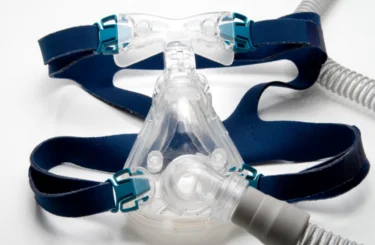Should Cell Phone Makers Be Liable in Distracted Driving Cases?
Apple has the technology to help prevent thousands of distracted driving crashes that occur every year, but they aren’t using it, according to a pair of lawsuits filed by the families of people killed by drivers using their cell phones.
The first suit, filed last fall in the federal court in Texas, involved a highway crash that killed two women and paralyzed a seven-year-old boy after another driver checking her phone for text messages slammed into the back of their car. In the second, which was filed in California state court in December, the driver was using FaceTime on his iPhone when he rear-ended another vehicle, killing a five-year-old girl.
Both suits focus on a patent issued to Apple by the U.S. patent office in 2014 for a “lock out mechanism” using “motion analyzers” and “scenery analyzers” to stop iPhone use by drivers.
Apple’s “failure to design, manufacture and sell the Apple iPhone 6 Plus with the patented safer alternative design technology that would automatically lock out or block users” was a significant contributing factor in the crash, according to the California suit.
While the two lawsuits target Apple, safety advocates say all cell phone makers can and should be doing more to prevent distracted driving. Drivers using their cell phones or texting cause more than 1.6 million crashes every year, according to the National Safety Council. U.S. highway deaths have surged by about 10 percent in recent years, in large part because of distracted driving.
Texting and driving is illegal in nearly every state in the country, and more than a dozen prohibit any hand-held cell phone use. Criminal penalties include stiff fines, demerit points, and even jail sentences. People harmed by distracted drivers can file civil lawsuits to hold them liable. But the number of distracted driving crashes continues to rise.
Safety advocates, legal experts, and others say we must turn to technology to solve the problem. Apple has “failed in their social responsibility” by not putting the technology in place, one law professor recently told The New York Times.
Cell phone makers counter that such lockout devices aren’t yet reliable, and can mistakenly shut down the phone of a car passenger or someone riding on a train or bus. But it’s unclear how hard the companies are working on improving the technology.
“If you’re at Apple or you’re at Samsung, do you want to be the first to block texting and driving?” one safety expert told The New York Times. “A customer might say, ‘If Apple does it, then my next phone is a Samsung.”
Until a technological solution is implemented, it’s important for everyone to do their part to stay safe on the road. Everyone knows that there’s no phone call or text that’s important enough to justify the risk of causing a tragedy like those in the two cases described above. Now we just have to find a way to resist the urge to pick up that phone while driving.
If you or a loved one has been injured as a result of a distracted driver or another form of motor vehicle negligence, the attorneys in the Sommers Schwartz’s Personal Injury Litigation Group are here to help – please contact us today!
Kenneth T. Watkins
Kenneth T. Watkins is an accomplished trial attorney and Senior Shareholder with Sommers Schwartz. Over the course of his career, he has obtained numerous multimillion-dollar settlements. His achievements include one of the largest seven-digit medical malpractice cases in Macomb County in 2008, and his election to membership in the exclusive Million Dollar Verdict Club.





